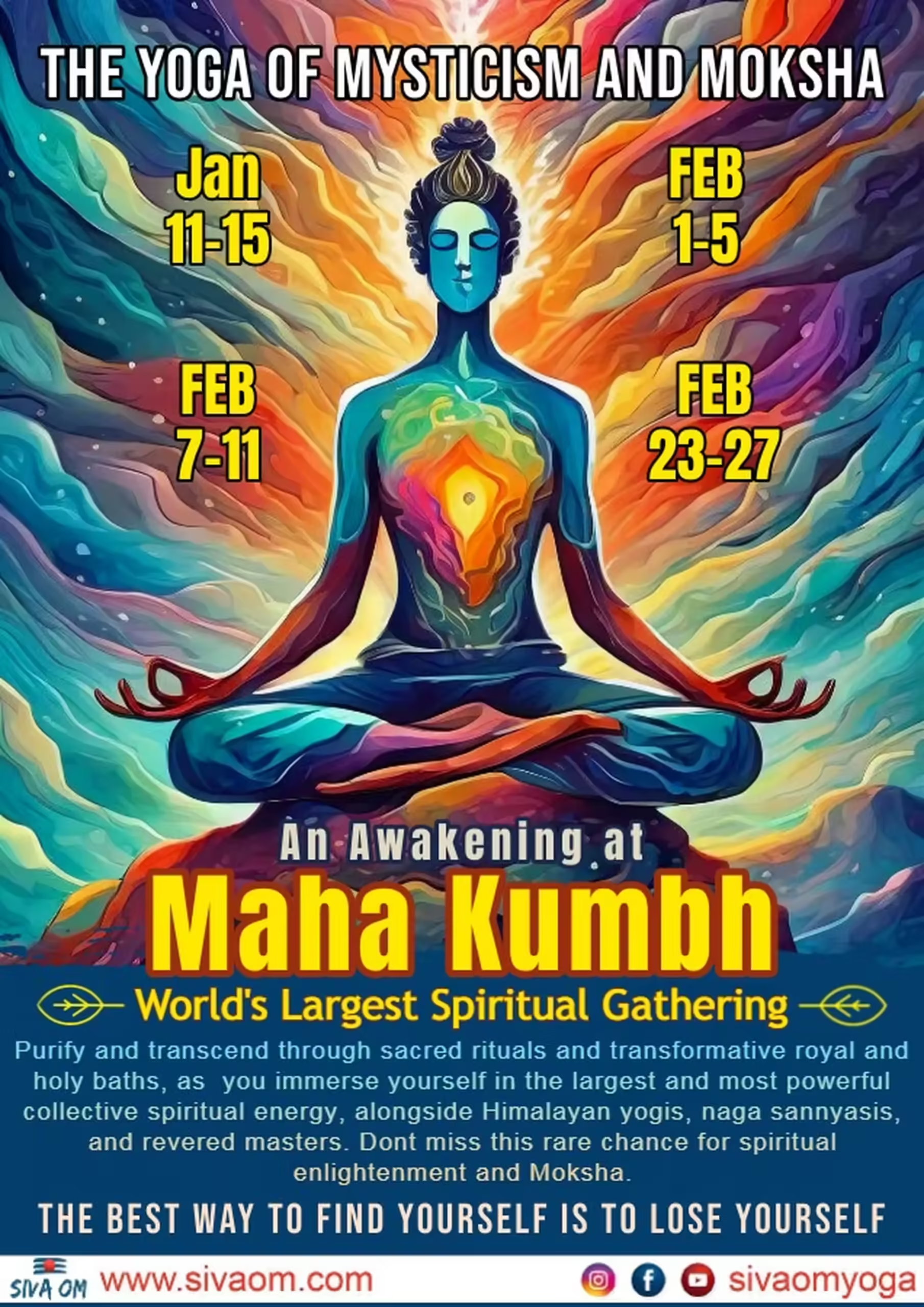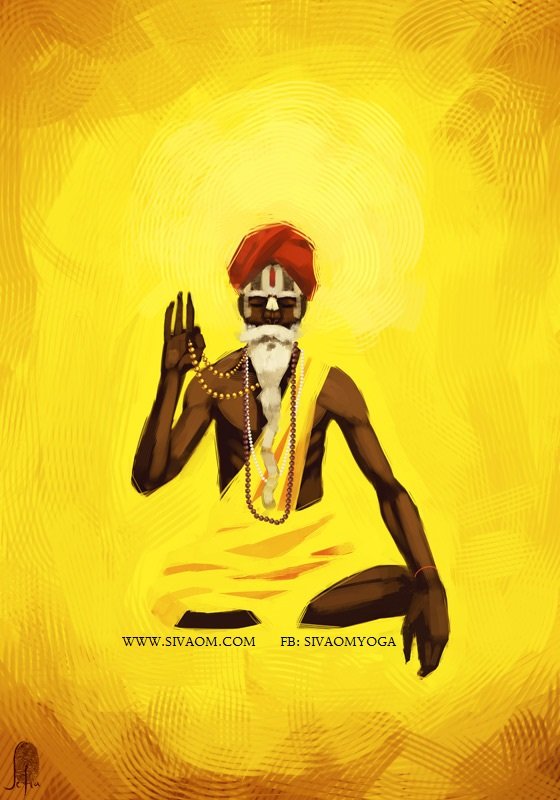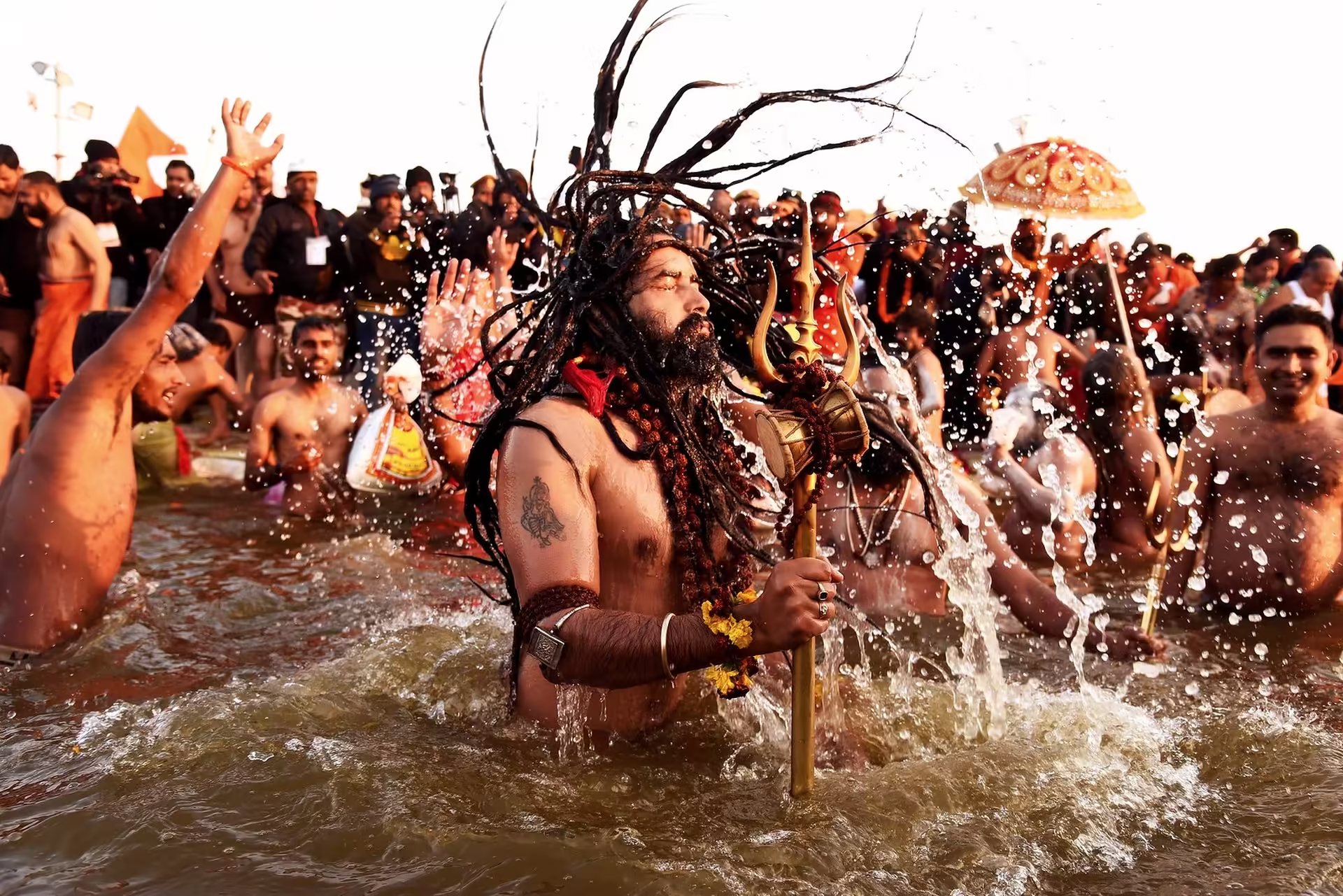An Introduction to Mahashivratri: A Yogic Celebration Honoring Bhagwan Shiv
Mahashivratri stands as a pinnacle among the holiest days, revered globally for its significance in the yogic tradition. Mahashivratri translates as “the Great Night of Shiv,” and it holds exceptional reverence. This annual festival commemorates Bhagwan Shiv, the epitome of cosmic consciousness and the ultimate yogi. While Shivaratri occurs monthly in the Hindu calendar, Mahashivratri is observed once a year during late winter, preceding the arrival of spring.
In ancient Indian culture, people celebrated 365 festivals annually. These festivities were not merely occasions for merriment; they served as opportunities to immerse oneself in various spiritual practices such as yoga, meditation, chanting mantras, kirtan, and the pursuit of truth. Whether driven internally or externally, participation in these rituals was valued for its contribution to meaningful karma.
Unifying Yogic Discourse
Despite the diverse purposes of these festivals, they shared a common thread: the discourse conducted during these events often centered around yogic principles, serving as a medium for spiritual exploration and enlightenment.
The Significance of Mahashivratri
Among these festivals, Mahashivratri stands out as a cosmic event of unparalleled importance. It transcends the realm of ordinary celebrations to offer a unique opportunity for individuals to unite with Shiva, the divine entity. As the night unfolds, it reveals profound yogic experiences, fostering a transformative shift toward spiritual enlightenment within each participant.
Stories and legends
Numerous stories and legends surround Mahashivratri, illustrating its profound significance. Whether recounting the divine marriage of Bhagwan Shiva with Mata Shakti, his resurrection of Chandra Dev, the purification of Earth by Mata Ganga, or the dissemination of yoga knowledge, these narratives underscore the sacredness of the occasion. Some even suggest that by observing Mahashivratri, one may accrue the merits of a million years of meditation and potentially attain a state akin to Shiva himself.
Significance of Mahashivratri
Rooted in Hinduism, Mahashivratri signifies a solemn remembrance of transcending darkness and ignorance prevalent in life and the universe. Devotees engage in various practices, including prayers, fasting (Vrat), yoga, and meditation. They focus on virtues like self-restraint, honesty (Satya), nonviolence (Ahimsa), and forgiveness. Throughout the night, ardent worshippers remain awake and chant mantras and do meditation. Yet there are others who embark on pilgrimages to Shiva temples or sacred Jyotirlingams, fostering a deep spiritual connection.

Bhagvan Shiv: The Divine Yogi
Bhagvan Shiv revered as the first yogi (ādiyogi) and guru (ādiguru), imparted timeless wisdom to the saptrishis (seven sages) on the banks of Lake Mansarovar in the Himalayas. This profound knowledge of yoga transcended borders, spreading across continents over millennia. Bhagvan Krishan’s rendition of this knowledge through the Shrimad Bhagavad Gita further solidified his status as Yogeshwar, the god of yoga.
Rituals and Practices
The observance of Mahashivratri involves fasting, with devotees abstaining from solid foods, and consuming only water. The night is spent in reverent prayer, often chanting “OM NAMAH SHIVAY” as a devotional practice. The following morning, the fast is broken with fruits, milk, or water, symbolizing surrender to Mahadev and the eternal cycle of creation and dissolution.

Universal Reverence for Shiv
The reverence for Shiv transcends time and geographical boundaries. Shiv temples and jyotirlingas stand as symbols of divine light and universal presence across the world. From ancient India to distant lands like Egypt and Mesopotamia, Shiv’s worship resonates across cultures. This is reflective of the universality of his divine essence.

Seeking Spiritual Enlightenment
On Mahashivratri, devotees bask in Shiv’s infinite brilliance. Yogis do fasting and worship throughout the day and night, seeking liberation from past karma and enlightenment. The sacred chants of “ॐ नमः शिवाय” (Om Namah Shivay) and “हर हर महादेव” (Har Har Mahadev) are the main mantras. They can be heard from a distance as the echos of devotion to the supreme lord of yoga, Bhagwan Shiv.
Mahashivaratri transcends mere ritualistic observance, inviting seekers on a transformative journey. It is a night dedicated to spiritual awakening, self-realization, and divine communion with Bhagwan Shiv.





